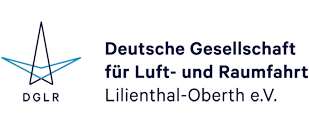DGLR-Publikationsdatenbank - Detailansicht
Autor(en):
S. Fuhrmann, I. Bolgar, V. Gümmer
Zusammenfassung:
Several of the revolutionary flight propulsion concepts studied today comprise heat exchangers as essential components. This could be either as part of unconventional gas turbine cycles as the Water-Enhanced Turbofan concept (WET) or as part of the thermal management system of electrified propulsion systems. Two-phase heat exchangers as condensers can contribute to significant improvements. Often the condensing medium is mixed with components that cannot condense in the present temperature range. A common case is the condensation of steam in the presence of air. This presence of non-condensable gases can lead to a significant reduction in the condenser’s heat transfer performance. Therefore it is crucial to assess its effect in conceptual design. Two well-established literature methods for modeling the non-condensable-gas-effect are compared with a far simpler alternative approach. The observed deviations in overall heat transfer rate using this latter approach do not exceed 6.6%, whereas modeling complexity and computation time are reduced. This observation enables an efficient assessment of condensation in the early phase of flight propulsion concept evaluation.
Veranstaltung:
Deutscher Luft- und Raumfahrtkongress 2024, Hamburg
Verlag, Ort:
Deutsche Gesellschaft für Luft- und Raumfahrt - Lilienthal-Oberth e.V., Bonn, 2025
Medientyp:
Conference Paper
Sprache:
englisch
Format:
21,0 x 29,7 cm, 11 Seiten
URN:
urn:nbn:de:101:1-2505211054261.955235878510
DOI:
10.25967/630170
Stichworte zum Inhalt:
Heat Exchanger, Thermal Management, Condensation
Verfügbarkeit:
Download
- Bitte beachten Sie die Nutzungsbedingungen dieses Dokuments: Copyright protected
Kommentar:
Zitierform:
Fuhrmann, S.; Bolgar, I.; Gümmer, V. (2025): Impact of Non-Condensable Gases on Two-Phase Heat Transfer in Aero Engine Heat Exchangers. Deutsche Gesellschaft für Luft- und Raumfahrt - Lilienthal-Oberth e.V.. (Text). https://doi.org/10.25967/630170. urn:nbn:de:101:1-2505211054261.955235878510.
Veröffentlicht am:
21.05.2025
